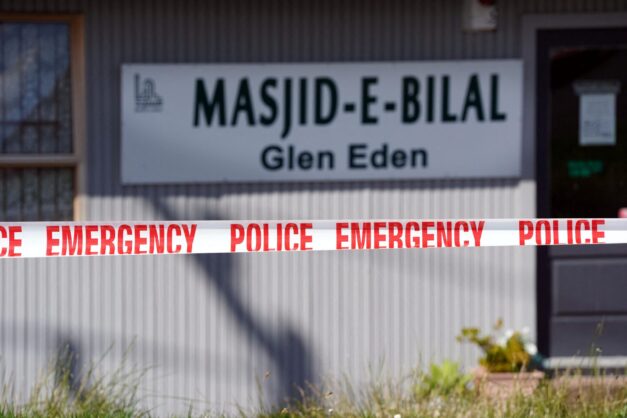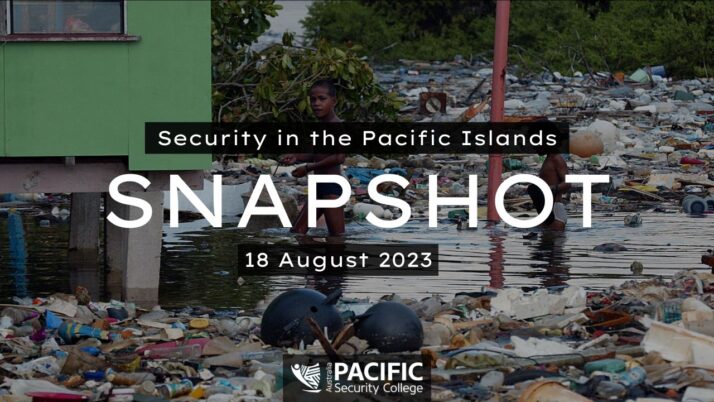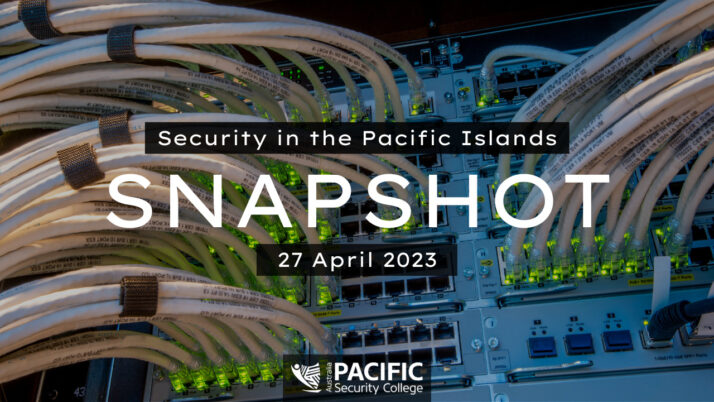Are Pacific countries at risk of becoming a gateway for terrorists?

Diego OPATOWSKI / AFP
Strengthening soft targets
A recent attack in New Zealand highlights the need for more regional cooperation on counterterrorism in the Pacific, Jose Sousa-Santos writes.
In the aftermath of the August ‘lone wolf’ terrorist attack in Auckland, New Zealand, it was revealed that the Islamic State-radicalised perpetrator, Ahamed Aathil Mohamed Samsudeen, had visited Samoa in 2016. Concerningly, this trip occurred while he was on New Zealand’s terror watch list.
In April and May of that year, Samsudeen was formally warned by the New Zealand Police about his online activities, which reportedly included posting comments advocating violent extremism and expressing support for Islamic State terror attacks. However, in November, he was able to board a plane at short notice and travel to Samoa for four days.
New Zealand Police reportedly believed Samsudeen embarked on this trip as a “practice run”, to see if he would be detected upon leaving New Zealand.
The Samsudeen case highlights two key issues for regional security. First, terrorist activities beyond the islands – including Australia and New Zealand – can have direct implications for the Pacific Island region. This is not because Pacific Islands will become radical training camps, but because the Pacific is vulnerable to becoming a thoroughfare for terrorist organisations and groups targeting Australia and New Zealand.
This is likely to be in conjunction with transnational criminal syndicates that are increasingly present in the region, as seen in other areas of the globe through the crime-terror nexus. The factors which allow criminal organisations and terrorist groups to use the Pacific as a thoroughfare are the same, namely a low risk of detection, porous borders, limited resources to combat crime, and corruption.
Second, this case highlights the need for effective intelligence sharing and enforcement mechanisms within the region. Samsudeen’s choice of destination to do a test run was likely deliberate; Samoa presented a much lower risk of detection at the border than Australia.
In response, the Samoan Government requested that Samoa’s Transnational Crime Unit investigate Samsudeen’s trip – including how he was able to travel there given he was on New Zealand’s terror watch list and what he did while in the country. New Zealand’s Ministry of Foreign Affairs and Trade stated that there was no information to suggest that he was a security risk at the time of his travel.
Counter-terrorism has a patchy history in the Pacific. This is hardly surprising given the region has historically been at very little threat from terrorist attack. A spike in attention took place following 9/11, however this was largely driven by Australia as it aligned itself with the United States-led ‘war on terror’.
Efforts to incorporate counter-terrorism initiatives into the regional architecture included the 2002 Pacific Islands Forum Nasonini Declaration on Regional Security, which called on leaders to introduce legislation and national strategies to address transnational threats, including terrorism.
The Pacific Islands Forum working group on counter-terrorism met annually for eight years between 2004 and 2012 to support policy and legislative development across the Pacific. In 2005, Exercise Ready Pasifika was hosted by New Zealand and the Pacific Islands, with former New Zealand Prime Minister Helen Clark stating: “it is important that the region is not a weak link in the counter-terrorism chain.”
More recently, four Pacific Island countries’ national security policies – Papua New Guinea, Samoa, Solomon Islands, and Vanuatu – all reference the global effort to combat terrorism and identify it as a transnational security threat. Vanuatu’s national security strategy specifically recommends developing mechanisms to monitor and respond to possible terrorist threats.
As unlikely as a terrorist attack in the Pacific is, there is potential for the Pacific to be a thoroughfare or gateway to targets in Australia or New Zealand. This potential is heightened by the likelihood of terrorist activity increasing globally, including in Southeast Asia and as a consequence of the Taliban takeover in Afghanistan.
However, with the policy focus shifting towards great power competition, there is a risk that countering terrorism and the crime-terror nexus will be given diminishing attention by policymakers.
As Samsudeen’s case demonstrated, the Pacific is seen as a soft security environment. But counter-terrorism initiatives can be strengthened in the region by other means. Efforts to combat transnational crime will result in a less permissive environment and assist law enforcement and security agencies to target entities utilising the crime-terror nexus to facilitate their operations.
Moreover, paying more attention to the nexus between state-based competition and grey-zone activities in the Pacific could result in enhanced intelligence sharing and enforcement mechanisms, as well as training. A more capable Pacific in the face of complex security threats will be better placed to respond to new terrorism threats.
José Sousa Santos
More Stories

Security Snapshot - 18 Aug 2023
Pacific Security Snapshot | 18 August 2023
The security stories shaping the region ➣ Pacific Resilience Facility endorsed at the Forum Economic Ministers Meeting ➣ The Pacific Climate Security Assessment Guide ➣ French President Macron visits Papua New Guinea and Vanuatu ➣ US Secretary of State and Secretary of Defence in the Pacific ➣ Bougainville eruption leaves 8,000 displaced Climate Security Ministers…

Security Snapshot - 1 May 2023
Pacific Security Snapshot | 27 April 2023
The security stories shaping the region ➣ PIF eyes bolstering Pacific Island Countries’ cyber defences ➣ Australia releases its Defence Strategic Review ➣ Plan ANZAC signed ➣ United Kingdom Foreign Secretary visits the region ➣ Marshall Islands signs bilateral agreements with Taiwan ➣ Pacific Prevention Summit in Fiji discusses gender equality ➣ Vanuatu mitigating coconut…






